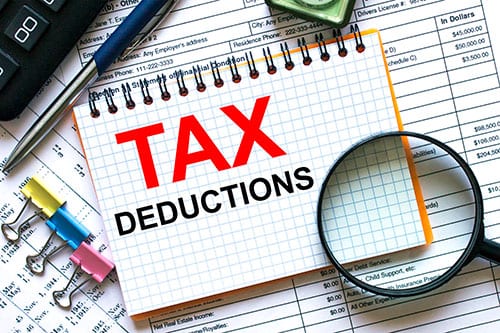5 Suggestions to Maximize Business Tax Deductions
Becoming a business owner means additional responsibilities and protection for your business and its assets, but we do not automatically have all the information we need to properly execute and protect our business. Critical concerns from failing to execute properly can be either legal or financial or both and both can be very costly. It is wise and responsible to consult with professional accountants and experts in business setup in the formation of, or as a review of your existing business entity and setup, especially regarding tax planning and filing. Our suggestions here, are not designed to take the place of these professional consultations. In fact, the areas of legal and financial advice are reserved to those licensed to provide this type of personal advice.
Business Setup and Startup Costs—For most businesses, the costs of getting your business started must be associated with the formation of a new entity. Some of these costs need to be spread over multiple years of tax filings and must offset business income. You are encouraged to form an entity as soon as possible, and if you can do so, set up the entity within the same year that you set up the business. As soon as the entity is established, make sure that you clearly separate personal income and expenses from business expenses. You will need a business bank account to do so.
Segregate Personal and Business Income and Expenses—One of the things that both the IRS and attorneys who represent people who want to sue you is whether you are following the rules for a legitimate business. The single biggest item they look for is a clear separation of funds. If they can find that the business owner has violated this principle, it becomes easy to look for money that they can take from you in a lawsuit or audit among your personal assets, and you can lose a lot more in these situations.
Learn the Rules for Deducting Key Business Deduction Categories—These Expense categories would include legal and professional expenses, education expenses, advertising expenses, supplies, etc. The equipment category can be especially confusing because some of these expenses can be deducted in their entirety during one tax year, while others must be depreciated, and the depreciation schedule can vary depending on the type of equipment to be deducted.
Use the Home Office and Travel/Automobile Deductions—Many people are afraid to deduct these items, they have been told that this is an audit trigger. While Home office does invite additional scrutiny if the area of the home is used only for business. In fact, for a home office of less than 300 square feet, you can deduct a per square foot amount, and the rule allows that this can be done without any home office expense records to support the deduction. Furthermore, if you can use your own vehicle in your business, make sure that you also research the mileage deduction and also the expenses deduction to make sure that you are claiming all that tax law entitles you to do.
Keep all Receipts and Records—You will need all your receipts to support deductions claimed, and you will need a log to support automotive mileage. There are apps available for smart phones that will allow you to scan receipts and use a mapping program to calculate distances traveled. These are acceptable to the IRS as a substitute for paper records and can save a lot of time. Also be sure to keep your entire tax file for a period of 7 years after you have filed for the subject year.
If you are new to filing for your business, you will need some advice from professionals on what deductions they recommend that you focus on, what to keep, and what the rules or limitations are. Then, you will need to use a professional accountant to help you file your taxes. Make sure that the accountants you interview have experience in doing accounting work for your particular type of business, as the guiding tax code could vary in application for different types of business. (I do want to help debunk a myth about the tax code. Most people have been mistakenly informed that the tax code is over 70k pages. In reality, the Federal Tax Code is around 2600 pages if you include only current tax code, but around 4000 pages if you include current and past code. The massive volume of 70k pages would also include pages of information written about the code itself that is not actual law.)
Finally, in view of the suggestions above, it is strongly to your advantage to use professionals to assist you, and to have good communication with them throughout each year as you conduct your business. Do not forget to deduct your expenses for their services, they ARE deductible. Having been through two audits myself, I can tell you that they consume a massive amount of time in preparation, they are NOT at all fun, and having won in both situations, the winning did not really make up for the challenges, or the anxiety. Let us organize at the beginning and use care in taking the deductions that are allowed. I have said this before but dealing with the IRS is a tug-o-war, and they will let you keep more of your money if you follow their rules.
____________________________________________________
1 https://www.araglegal.com/attorneys/learning-center/topics/practice-management-technology/ten-ways-to-maximize-business-tax-deductions from the Arag Legal website

